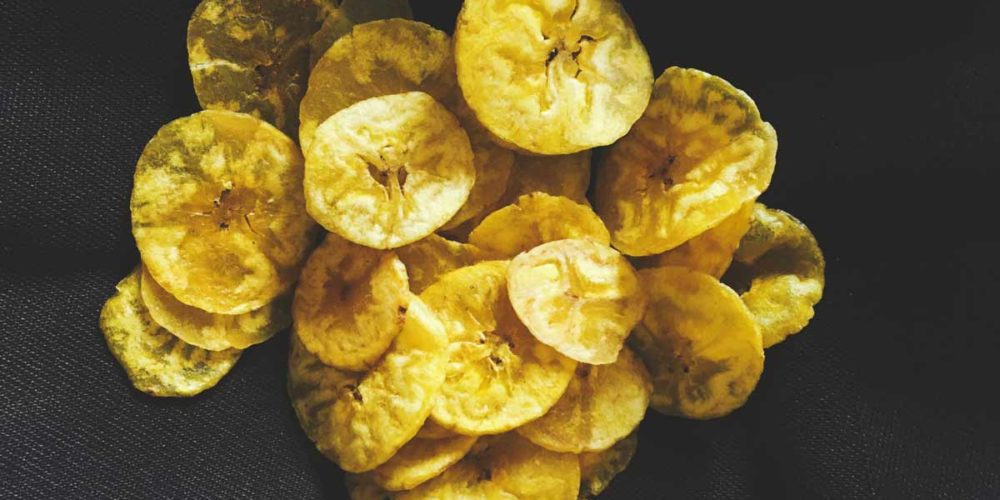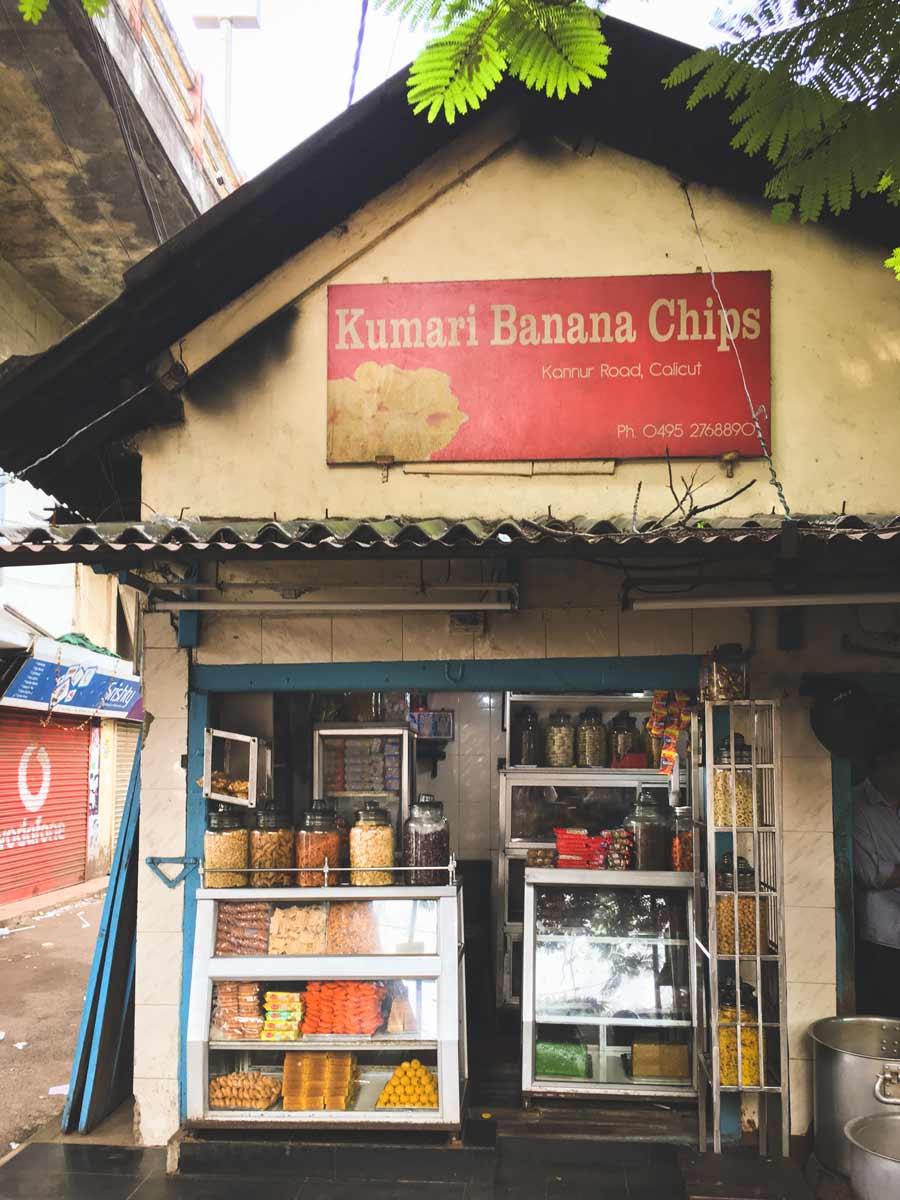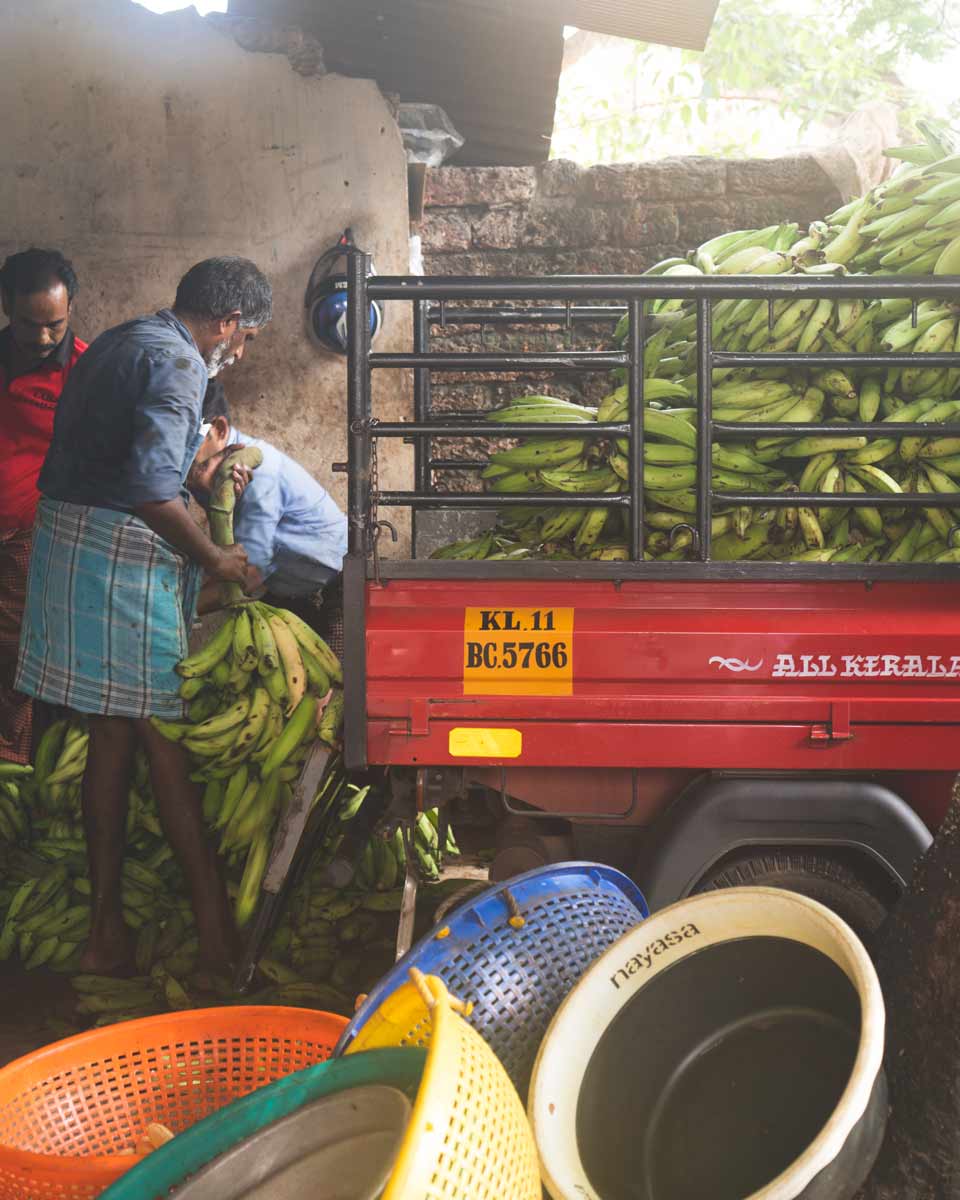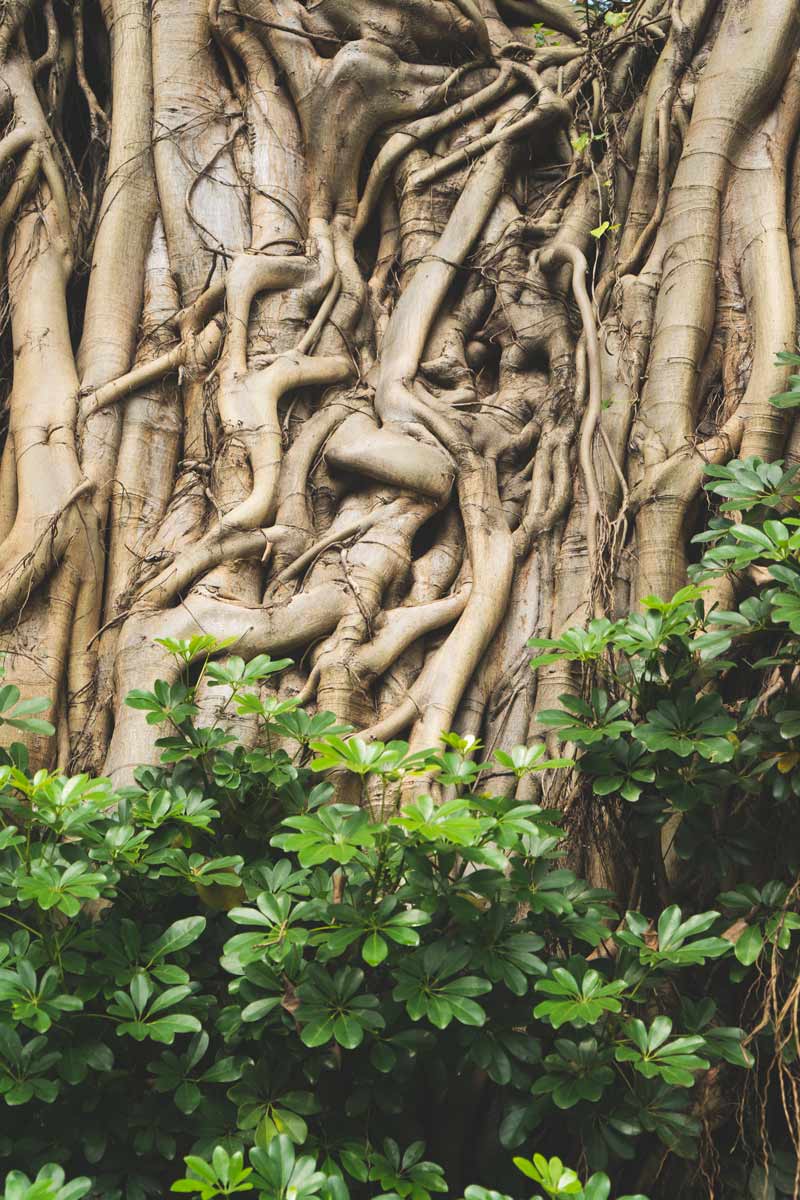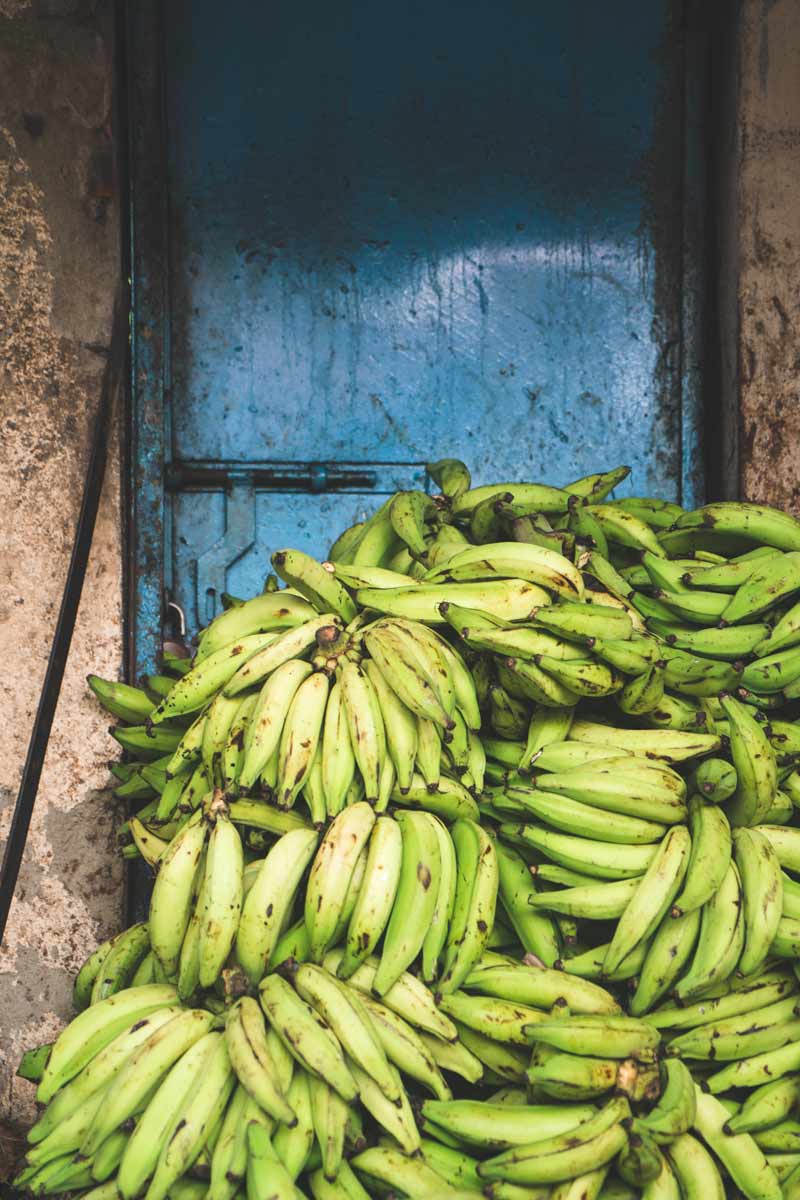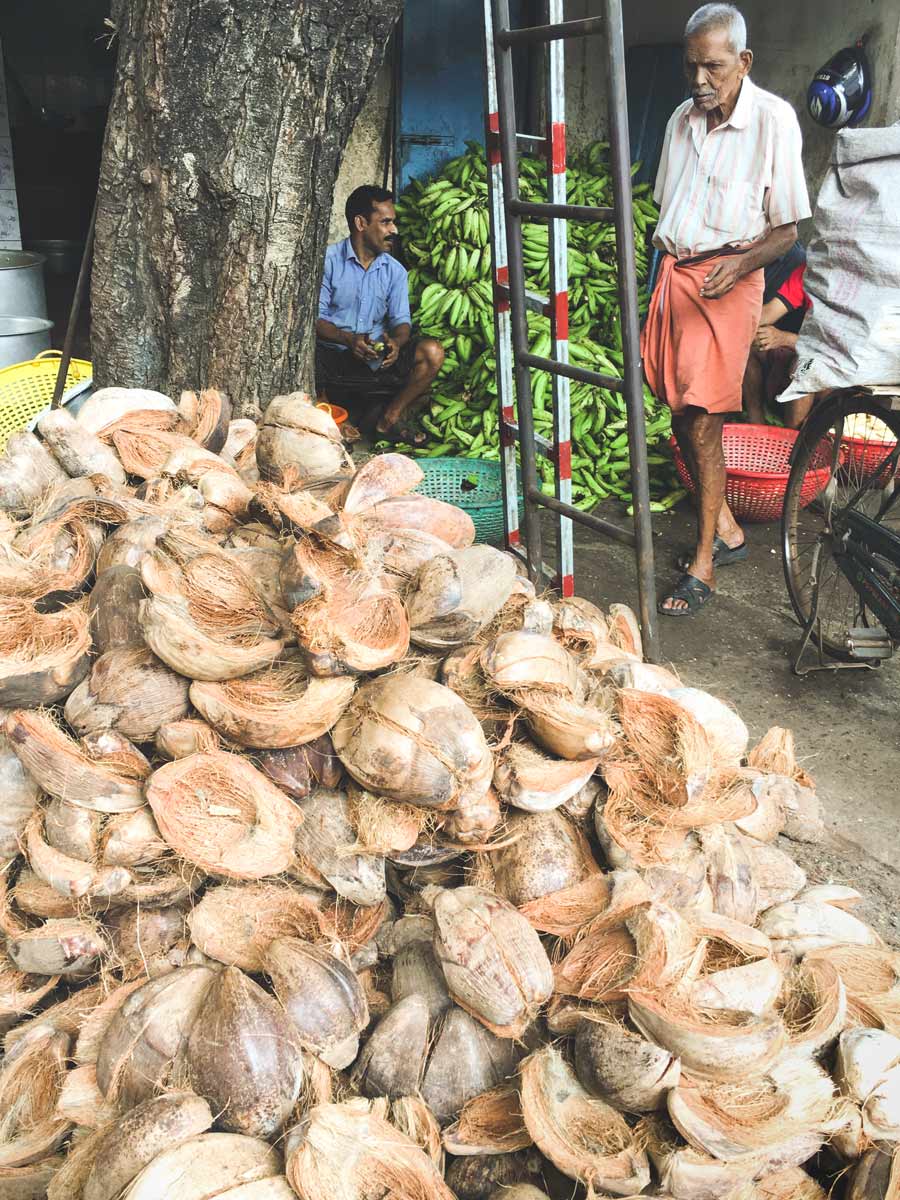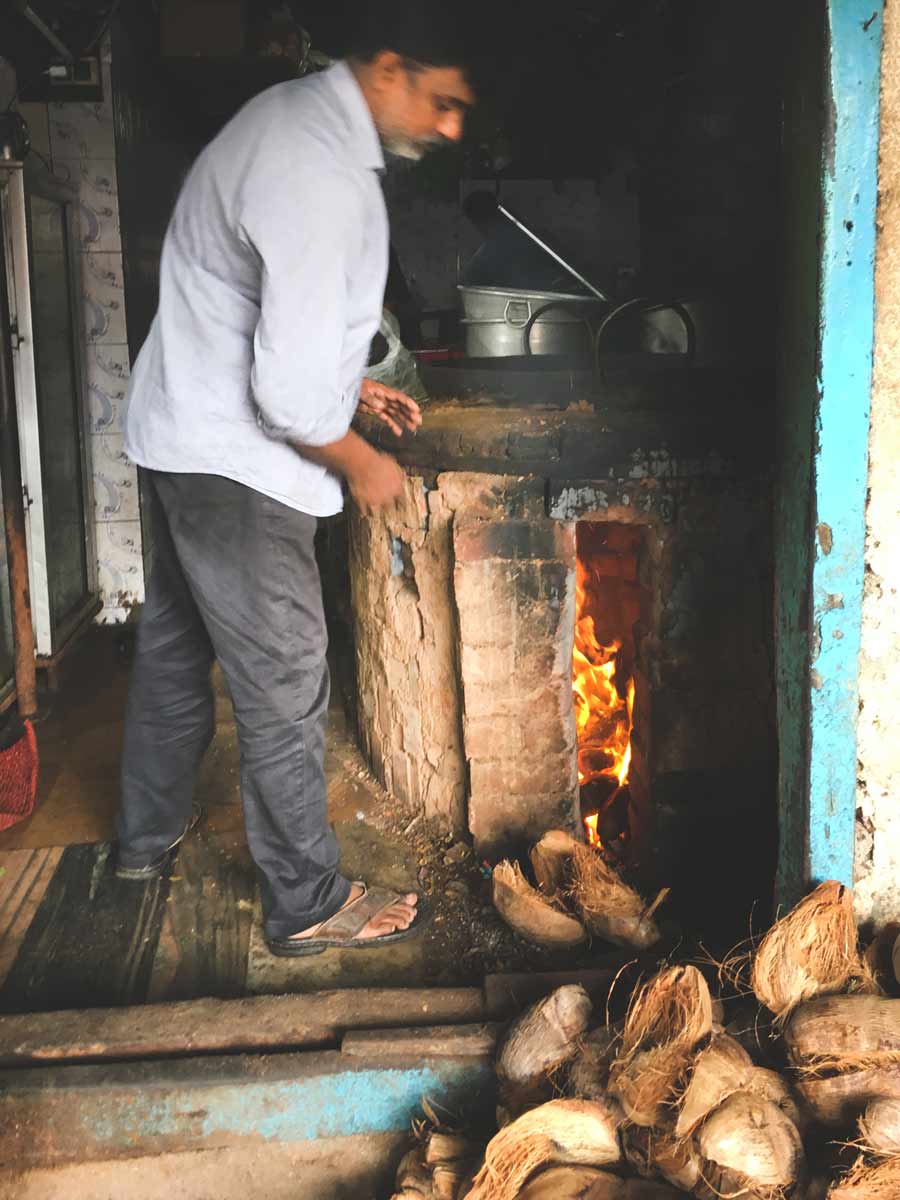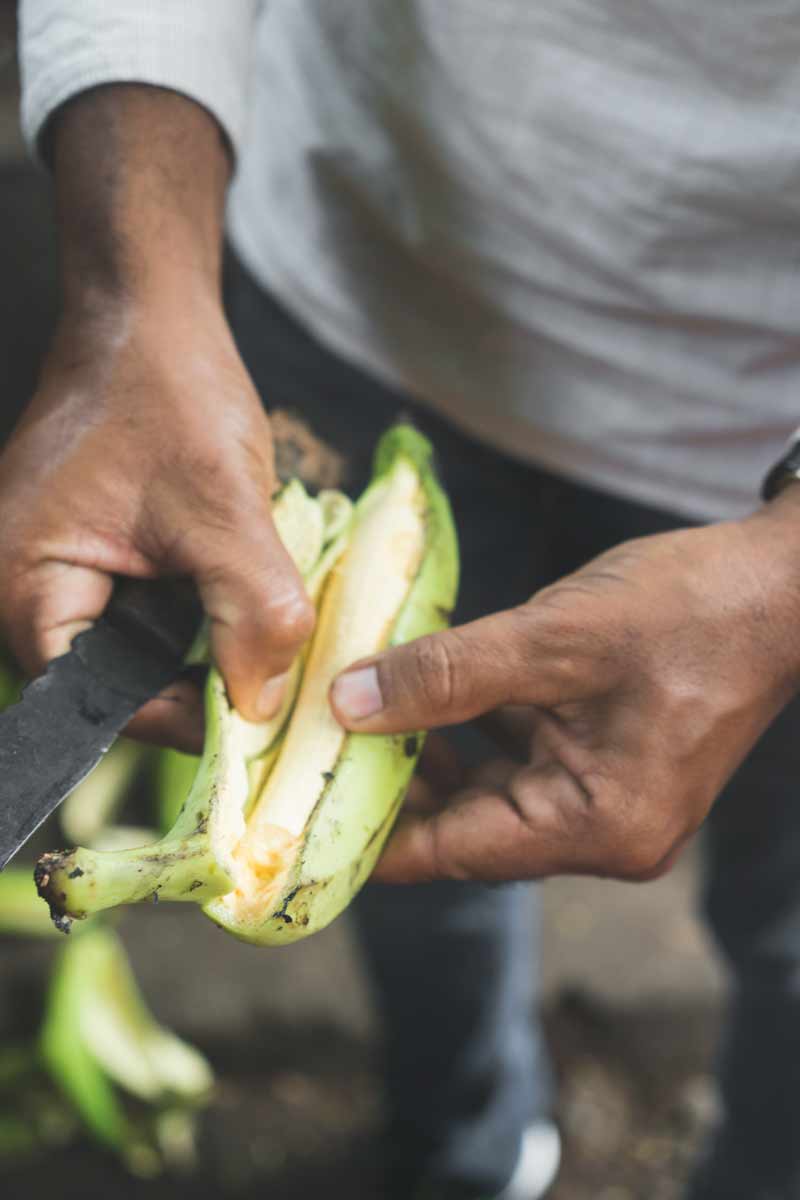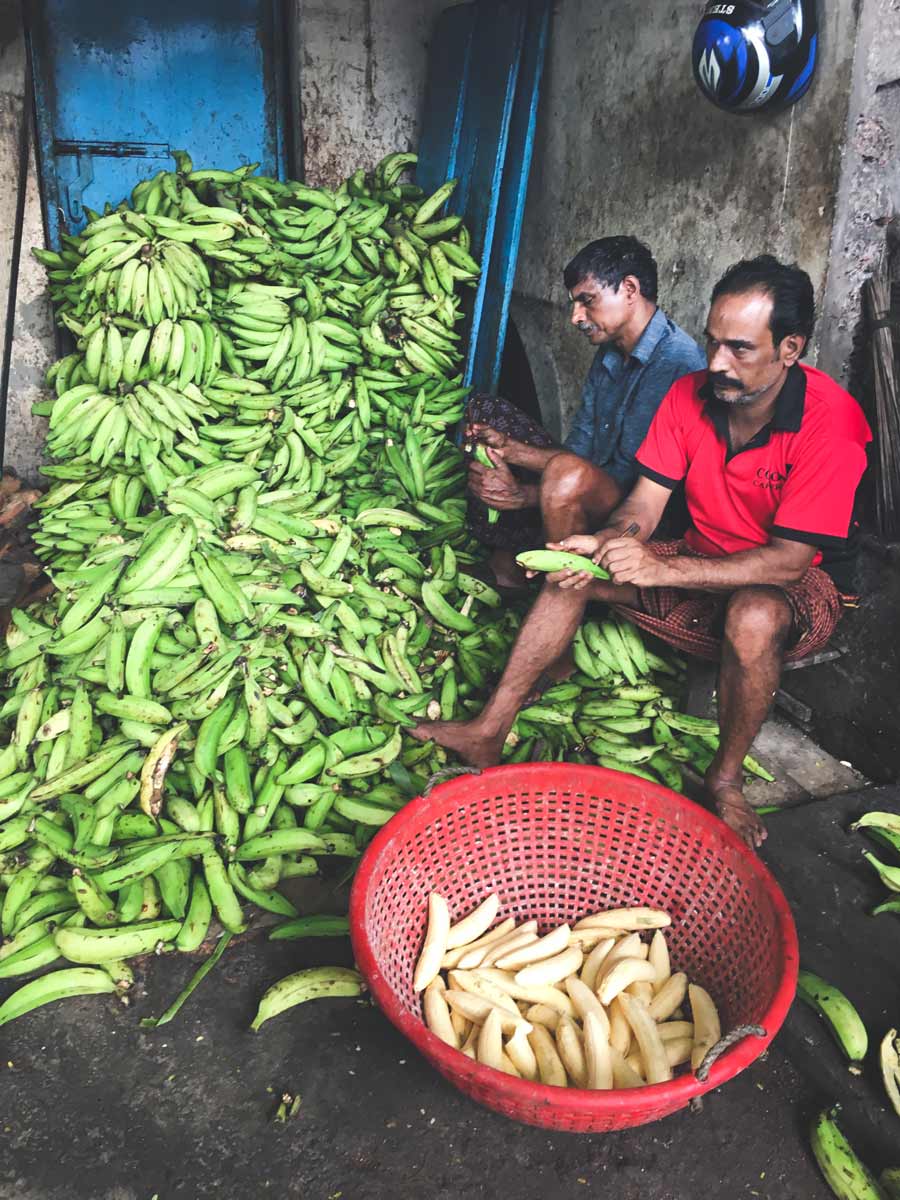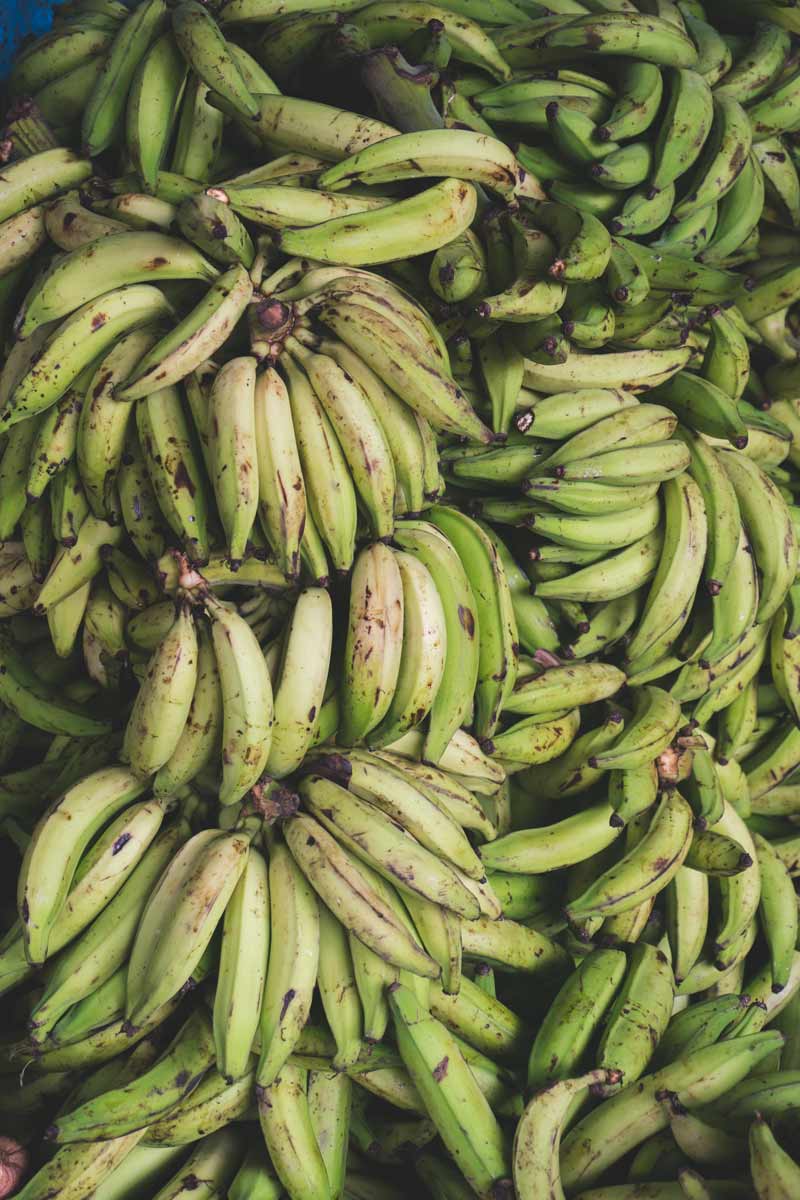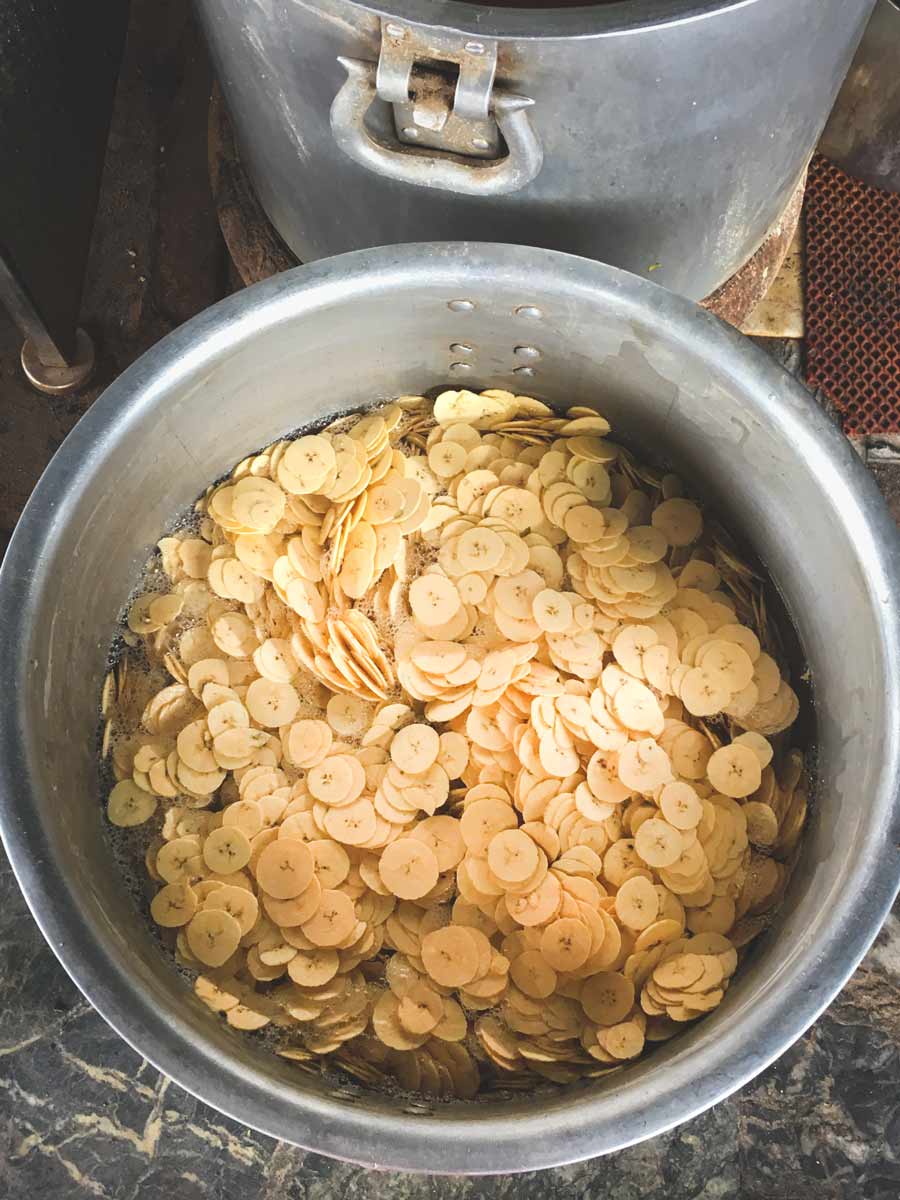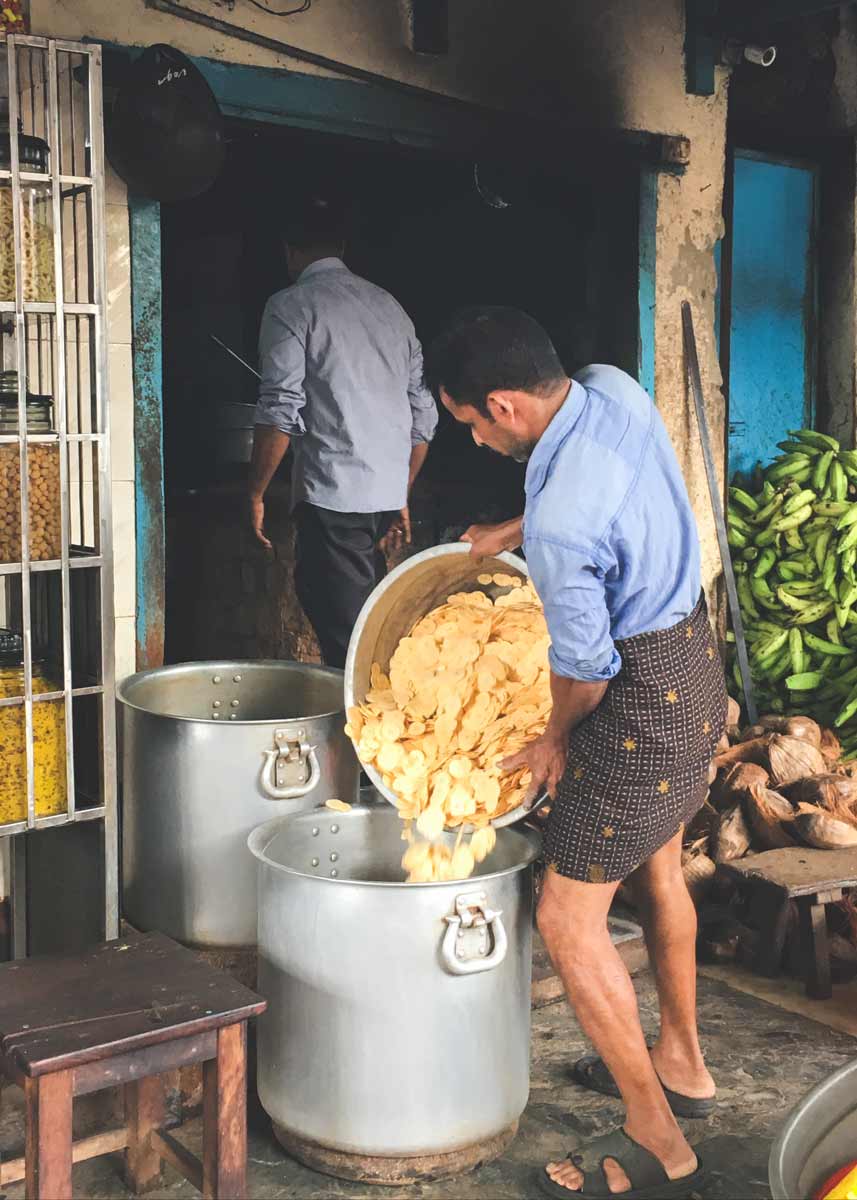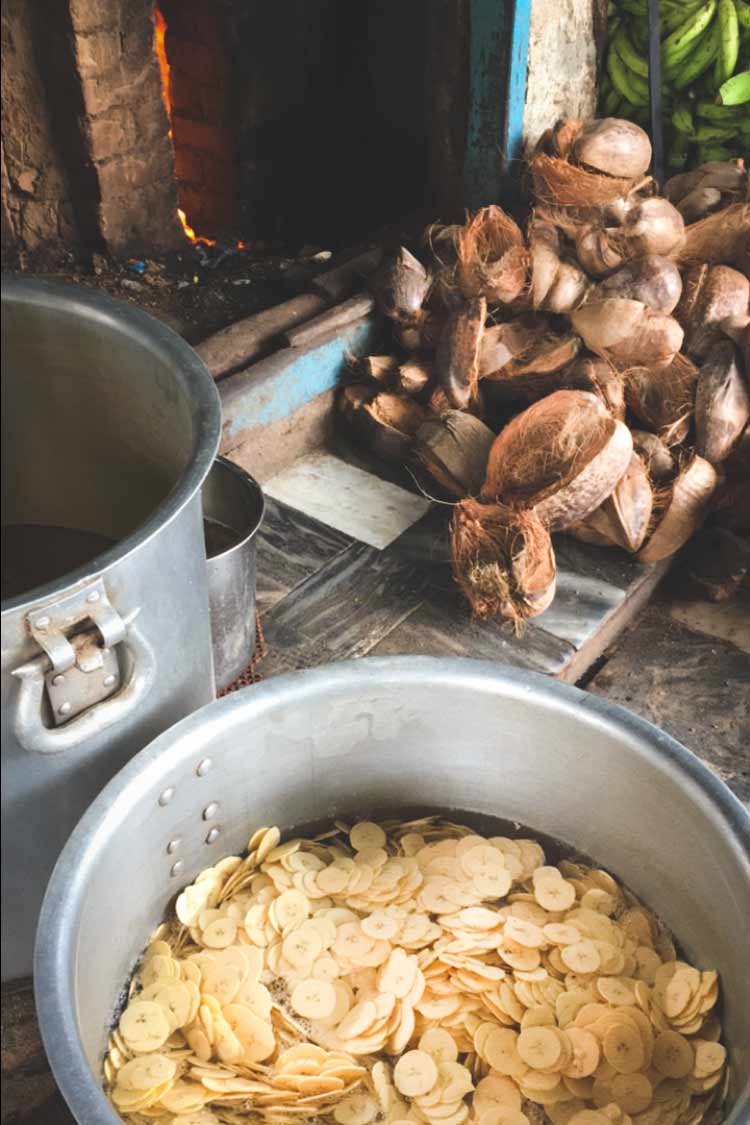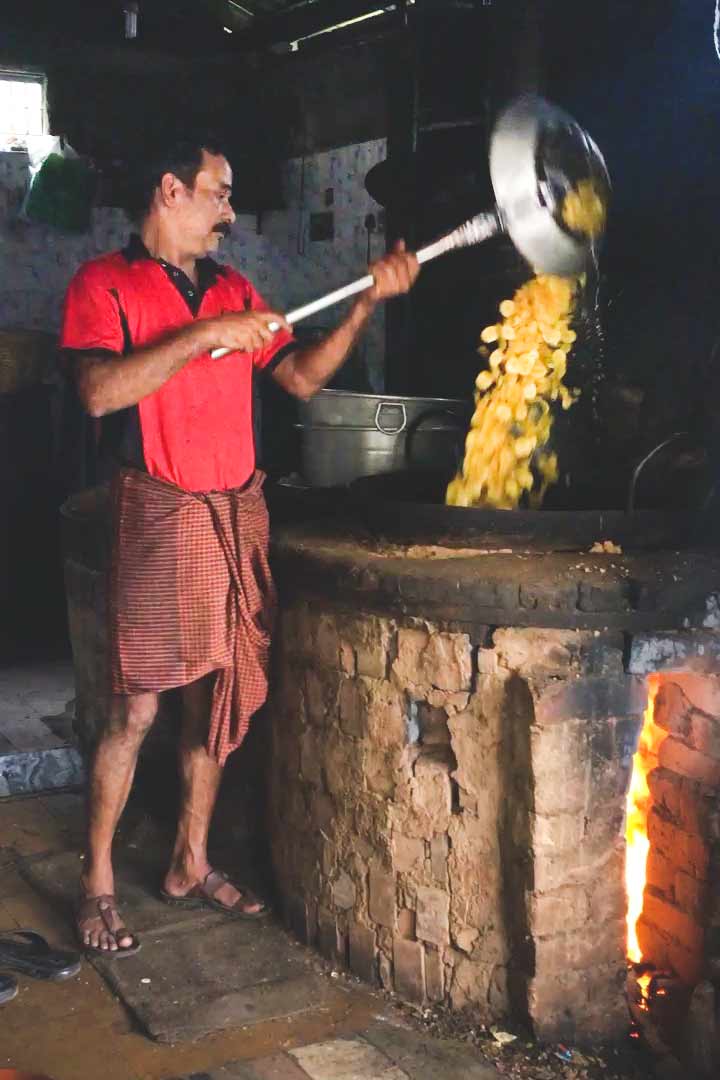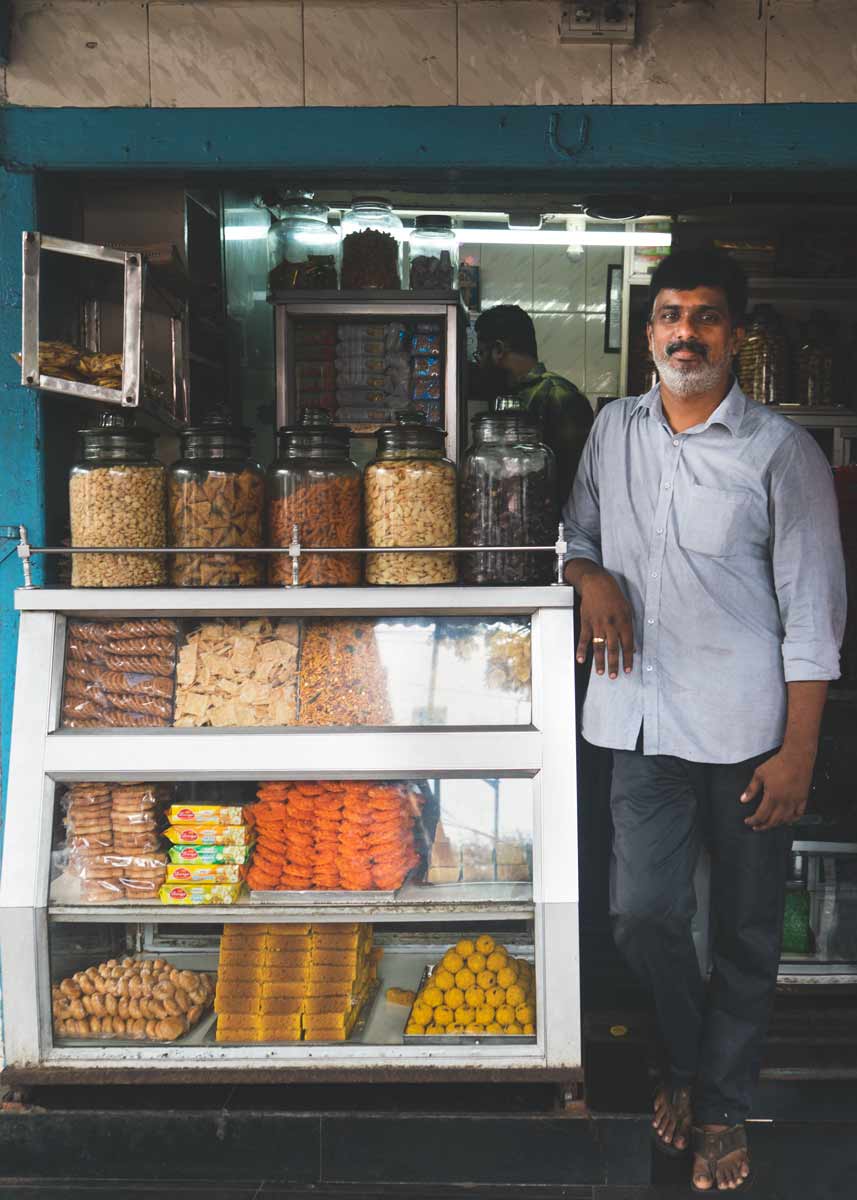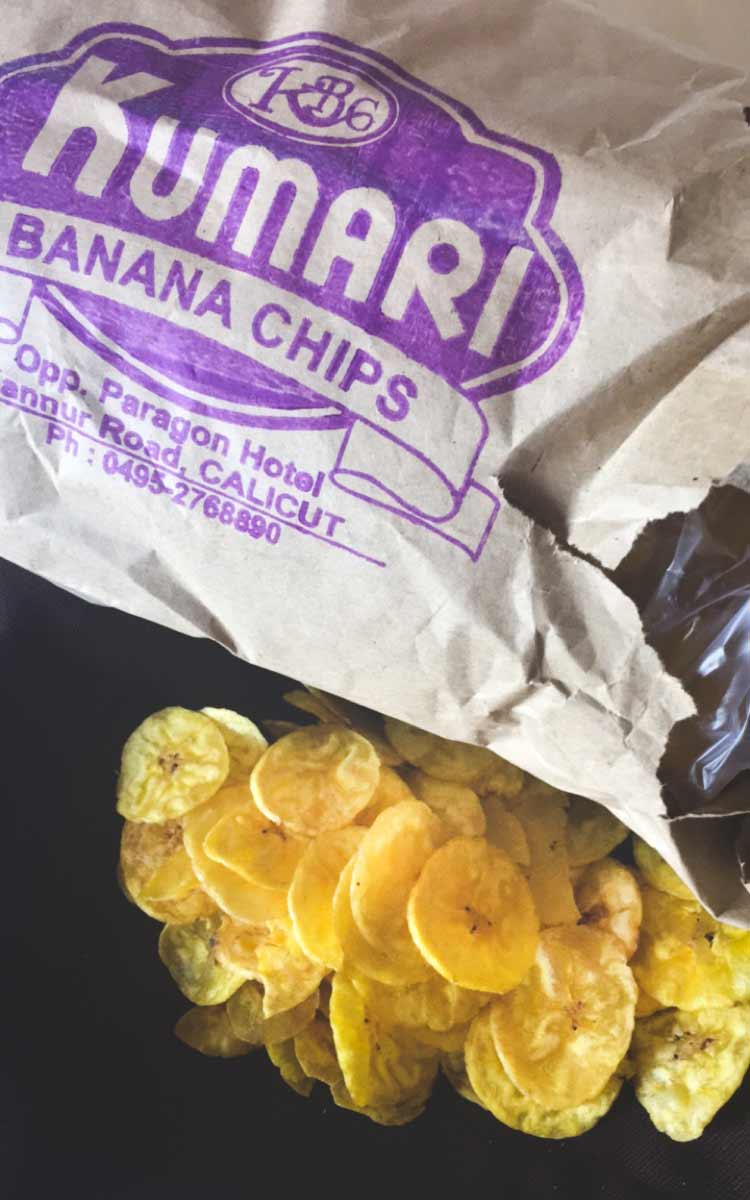It’s 9:30 in the morning. Traffic is picking up in the market district of Kozhikode (Calicut) not far from the beach and the fish markets. Stall keepers are pulling up their retractable doors and shops are opening. One of them is Kumari Banana Chips.
From across the road we watch a small red-bodied mini-truck with green wooden panels back up to the shop under the shade of a huge old Ficus. Three men work to unload the delivery. The daily order is 150 kilograms of big green Nenthiran bananas. The men make a pellmell stack in the corner of the courtyard under the tree. It’s near their lean-to kitchen shed on the side of the shop proper. A large round fire pit built of bricks is visible from the open doorway.
We wander a bit closer as another truck dumps a load of coconut husks between the tree and the kitchen. The cook gathers them into basket loads and sets to work pitching them into the fire he has started. Once blazing, it takes two men to lift a cast iron wok full of coconut oil to sit atop it.
Peeling Bananas
The same men sit then, and with long chisel-like picks, they begin the work of peeling the large firm raw bananas. Each one takes them about 30 seconds. They smile and offer us the chance to try.
Five minutes later we contribute our mauled specimens to the piles of peeled fruit. They pitch them into brightly coloured red, orange, green, and yellow plastic laundry baskets. When those are full, they rise to each take hold of a rope handle. They carry the bananas to an electric slicer at the back of the shop. The sliced bananas reappear to be rinsed in a bath of turmeric tinged water. They are drained, rinsed again, drained and dipped one more time in a new and final dunk tank. This time salt has been added to the turmeric and water to up the flavour profile.
By now, the oil in the wok is bubbling like a lava-filled volcano. Coals glow red hot below it. The banana slices are grabbed by the double hand full, given a quick shake and then pitched into the oil and stirred with a long-handled sieve. While they cook we get to know the owner of the shop.
Suju Sreedharan is his name
Suju owns Kumari Banana Chips with his father Sreedharan who started the business in 1967. It’s named Kumari after Sreedharan’s late wife. When we ask Suju why his father started the business, he tells us of his father’s humble beginnings.
“My father was a coulee, a spade worker. He dug ditches and ploughed farms. He wanted to marry my mother but needed to be able to provide a better life than what ditch digging could afford. His family was passionate about snacks – especially snacks that used Kerala’s abundant bananas. So, he started a stall frying and selling them. Because he cared about quality and taste, he earned a good reputation, and by word of mouth his business grew.”
Sreedharan was smart. He not only delivered quality, he also opened his banana chip shop directly across the street from the city’s most popular seafood restaurant. That restaurant, The Paragon, opened in 1939 and is still open. Banana chips make a nice snack while you wait in line to get into the restaurant. As we wrap up our time at the banana chip shop cum factory the elder owner arrives. His son tells us his mother, Kumari, has passed away a month prior and his father is grieving deeply.
We silently bow our heads and press our hands together in a respectful Namaskaram greeting. He nods back. We buy a large bag of the still warm chips and bid the father and son farewell. They are local legends and the humblest of men.
When the chips are down…
We reckon the chips are equal parts coconut and banana flavour. Thin and crispy, we eat them until we can’t bear to look at them. Then we eat some more. If you find these South Indian food artisans on your own visit to Kozhikode, be sure to say hello from us.
As far as a recipe goes, if you can get your hands on THOSE bananas, we figure you’ll be able to figure out how to make the fabulous Kumari Banana Chips from what we’ve written in this story. You are a fortunate soul, if you live where Nenthiran bananas grow. Enjoy.

